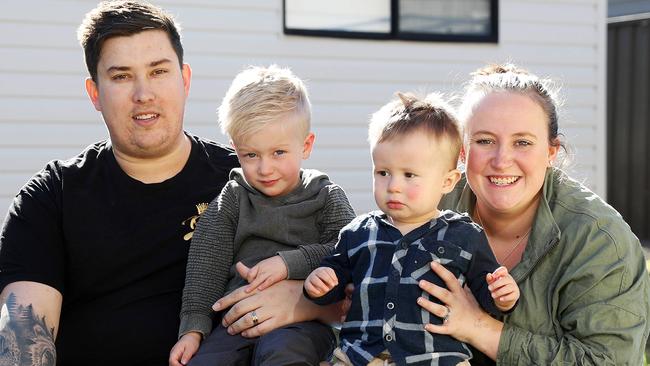Heart attacks are more likely to occur in Australia during winter
Winter is not just the peak season for severe and sometimes fatal cases of the flu. New research reveals the colder months also bring on another deadly health threat.

Exclusive: Flu is not the only deadly health threat that comes with winter — it’s now been revealed as the peak season for heart attacks and heart failure.
There is a 32 per cent spike in hospital admissions for heart failure in winter compared to summer, new research shows.
And one in ten patients admitted to hospital with a heart problem will die within 30 days of being admitted to hospital.
For people with heart problems, simply shivering when it gets cold can be enough to overtax their cardiovascular system and bring on a serious heart event.
Fighting off the flu and other viruses also contributes to the rise in heart problems.
“When a cold front from Antarctica comes through and you are cold and shivering it makes the heart work harder,” said National Health and Medical Research Council senior researcher Professor Simon Stewart, who co-authored the research.
“People get more breathless, they have trouble walking, they get swelling in their ankles.”

MORE HEALTH NEWS:
The heart test that will save four lives a day
How deadly funnel-web spider venom can save lives
Cancer medicines are about to get cheaper
Holy grail of cancer treatment discovered
Report co-author and Melbourne-based expert in cardiovascular medicine, Professor Louise Burrell said colder weather can increase blood pressure, which makes it more difficult for the heart to pump blood around the body.
Professor Stewart added the problem is exacerbated by doctors who don’t warn heart patients about the risk and the hospital system which does not put on extra staff to meet the spike in patients.
The report — funded by pharmaceutical company Novartis which makes heart treatments — estimates we could save $360 million a year on hospital spending if we could bring winter heart hospitalisation rates down to summer levels.
There will be 593,000 admissions for cardiovascular disease in Australia in 2019 and there will be 41,500 (450 per day) more in winter than in summer.
To reduce hospitalisations, Professor Stewart recommends people get a Medicare funded heart health check from their GP in autumn.
“Make sure you heat your home and wear warm clothing and avoid going out and exposing yourself to cold and wet conditions,” he said.

Symptoms of heart failure can include breathlessness, fatigue, needing to be propped up on pillows to sleep, sudden increase in weight, appetite loss, nausea, persistent cough or wheezing and swollen ankles, legs or stomach.
You might think it’s the coldest towns and cities that have the biggest problems with winter heart problems but this is actually not the case.
“In Canberra the housing is adapted to the cold and people have clothes to cope but in Syndey and the Gold Coast when a cold front comes through they are not prepared,” Professor Stewart said.
MIDWINTER HEAT CRISIS
In the middle of winter in 2017 Jordan Burr Marsh felt short of breath and had difficulty walking before he collapsed and woke up in hospital diagnosed with cardio myopathy caused by a virus.
The 27-year-old window installer and father of two from Penrith, in Sydney’s west, said his GP initially dismissed his shortness of breath as anxiety, but three days later he couldn’t walk to his car and his heart rate had gone through the roof.
“I was sick with something like pneumonia when I was 16 and was told something about my heart but they told me I needed no further checks,” Mr Burr Marsh said.
Before the latest attack, he’d been labouring five to six days a week and playing indoor soccer and hockey but now can’t work at all.
He has been to hospital 18-19 times and is about to be put on the heart transplant list.
“I feel guilty because I can’t run around with the kids. My expectations of being a father have been thrown out the window and I’ve had to move back in with my parents,” he said.
Mr Burr Marsh said he was unaware of the connection between winter and a spike in heart problems and urged Aysrralians to get a heart health check.
“I’ve had my kids checked already because of what happened to me and they are three and one,” he said.
STATE BREAKDOWN OF HOSPITAL ADMISSIONS FOR HEAT PROBLEMS
NSW had the highest number of annual hospital admissions due to heart failure (24,400, 7,077 admissions during winter); followed by Victoria (18,900 admissions, 5,479 during winter); then Queensland (13,920 admissions, 4,066 during winter); Western Australia (7,000 admissions, 2,019 during winter); South Australia (6,100 admissions, 1,756 during winter); and Tasmania (1,830 admissions, 538 during winter).
Originally published as Heart attacks are more likely to occur in Australia during winter


